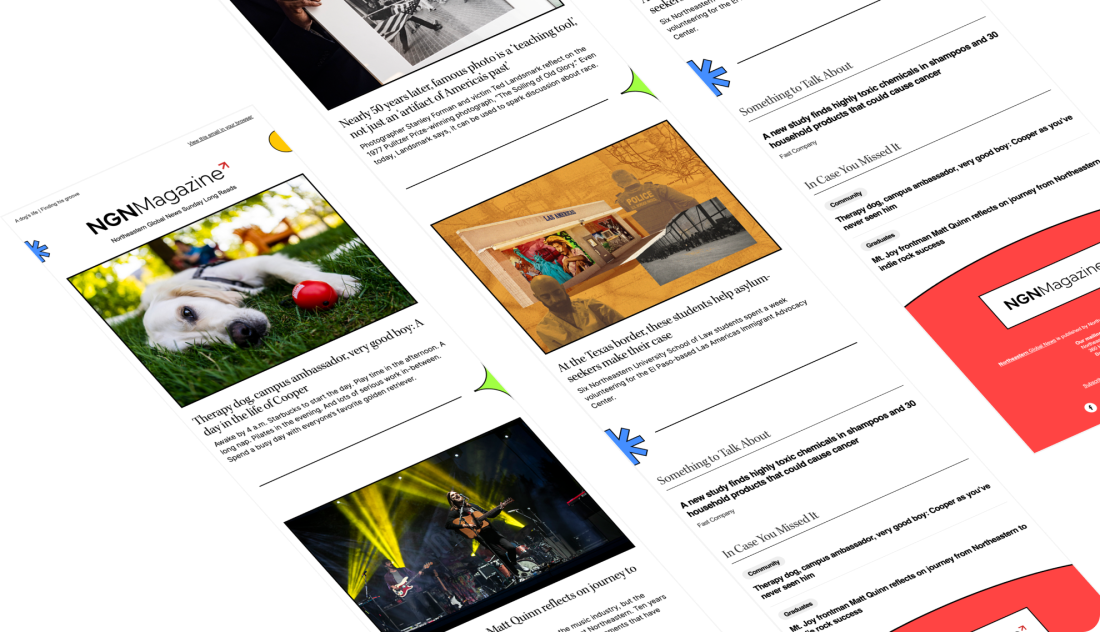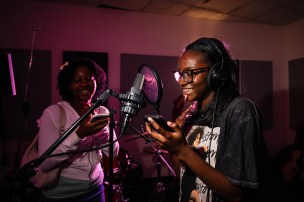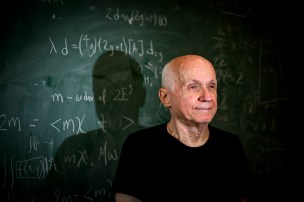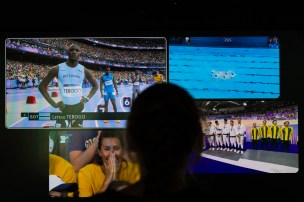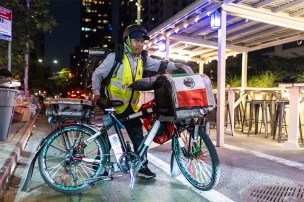Published on
Program is transforming youth music education and amplifying diverse voices
Beyond Creative @ NU gives high schoolers from across Boston a crash course in how to record music, make beats, write songs and tell their story with other young people.
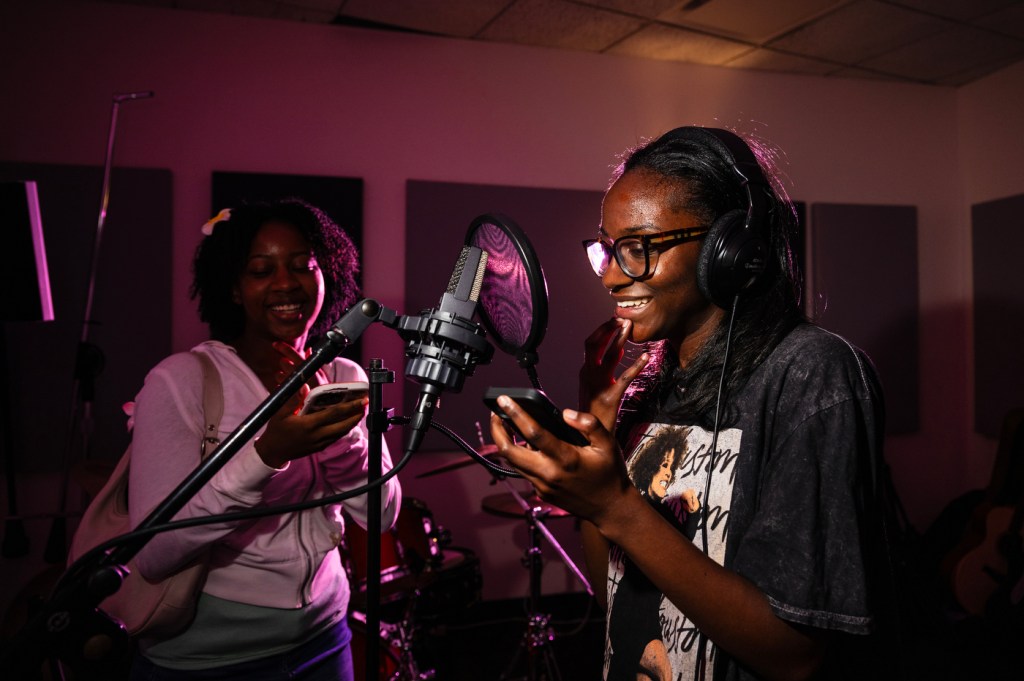
When Terry Borderline played a recent collection of songs for fellow Boston-based hip-hop artist K.C. El, one beat stood out to K.C. He needed to know who wrote the beat –– he wanted to use it on his upcoming album –– so Borderline happily told him who was behind it: 16-year-old Javier Arroyo Lomon.
Before he knew what was happening, Arroyo Lomon got a call from K.C. El and sold his first beat.
“I very much enjoy being able to say, in collaboration with other people, I created this,” Arroyo Lomon says of the experience. “There was nothing there or only ideas here, and I made something tangible.”
A rising junior at Boston Latin Academy, Arroyo Lomon has been making music for a few years, but he has started to come into his own as an artist through Beyond Creative @ NU, a recent collaboration between Northeastern University music faculty and the Transformative Culture Project, a Boston nonprofit.
Beyond Creative @ NU started in 2022 and has run every spring and summer since. The program gives high schoolers from across Boston a crash course in how to record music, make beats, write songs and tell their story with other young people. Each course culminates with the students creating a collaborative album.
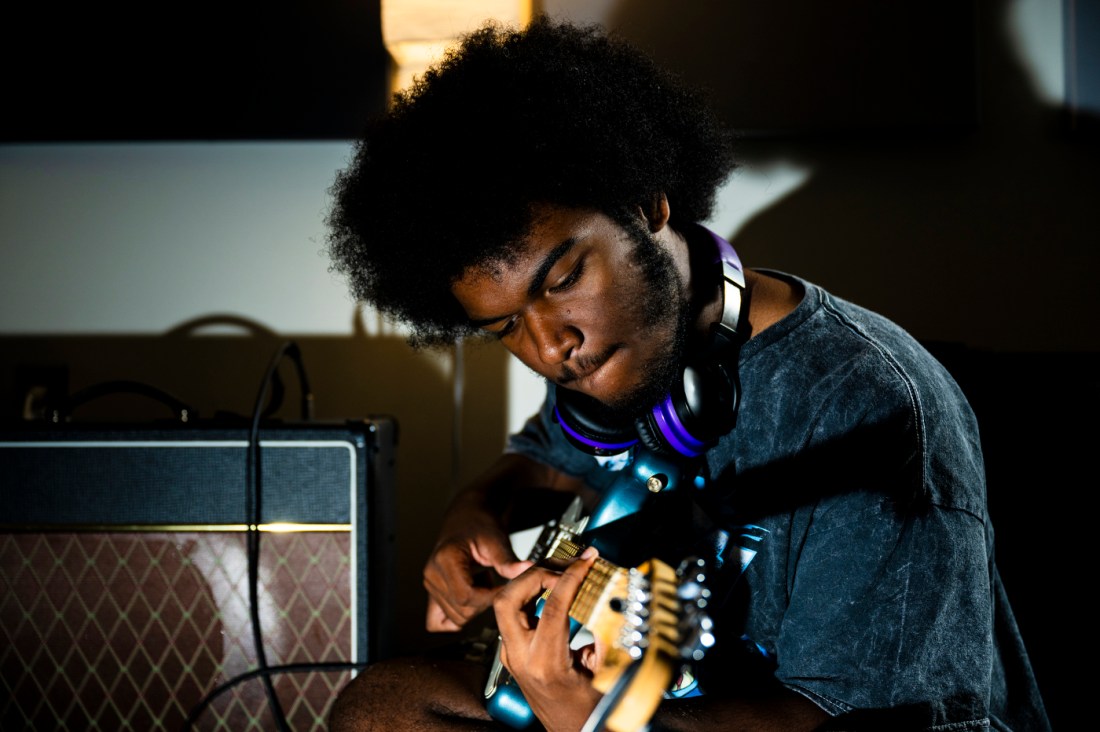
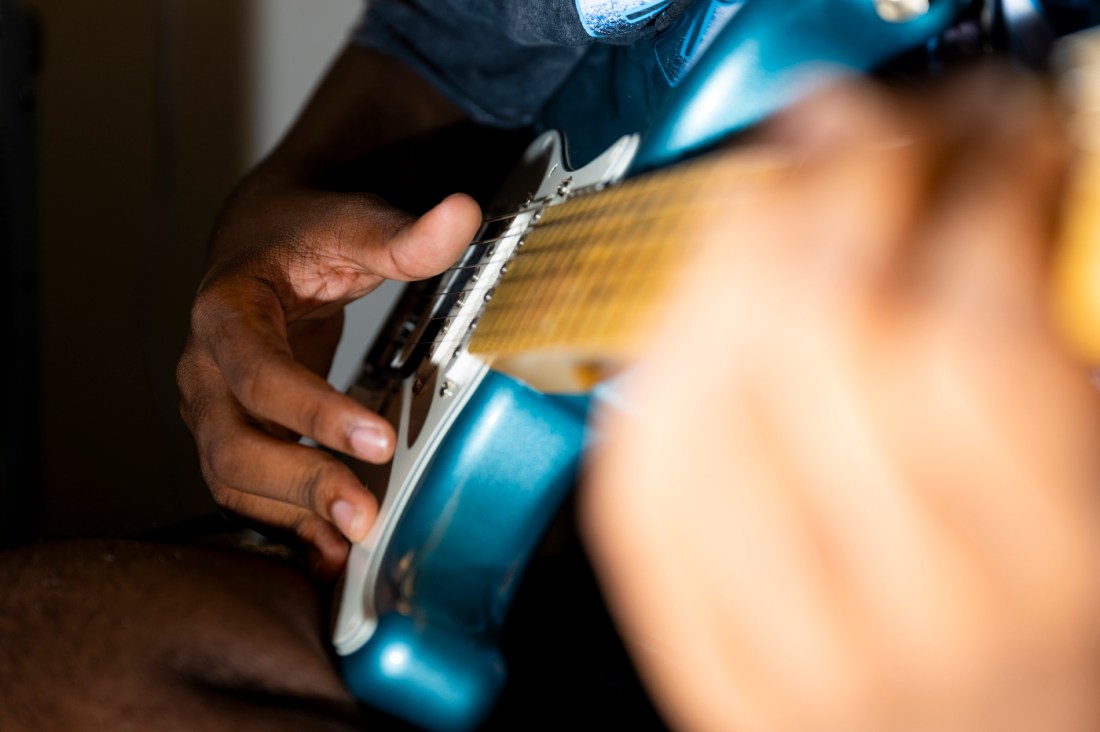
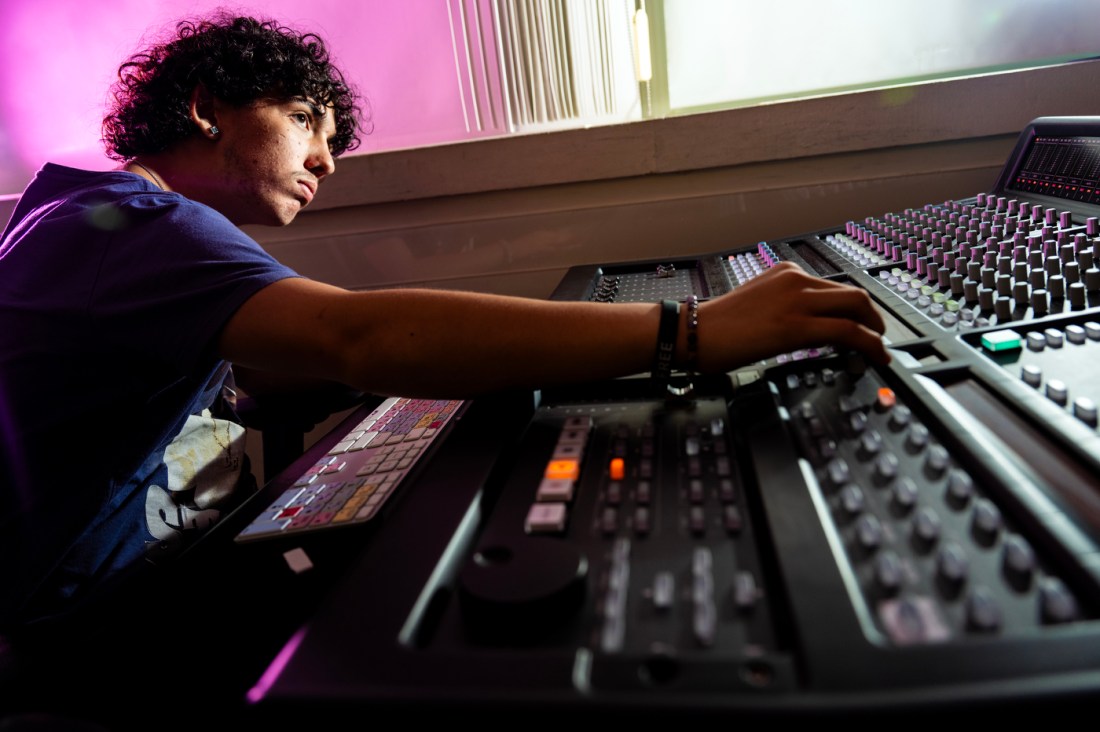
The program started as part of a broader initiative to expand diversity in Northeastern’s music department, not only through who teaches music at Northeastern but what students are given opportunities to learn music at the university level. Rebekah Moore and Francesca Inglese, both assistant professors of music at Northeastern, started the program after pondering the question, how do you bring in more students?
“You have to go back to the pipeline, which is high school and elementary school, because really what’s creating the [diversity] of music departments at the national level is access to music education long before you get to the university classroom,” Inglese says.
Working with TCP, a community organization that Moore had already established a relationship with, and later bringing in Victor Zappi, another assistant professor of music at Northeastern, they designed Beyond Creative @ NU.
I very much enjoy being able to say, in collaboration with other people, I created this. There was nothing there or only ideas here, and I made something tangible.
Javier Arroyo Lomon, a Boston Latin Academy student
Moore, Inglese and Zappi provide access to Northeastern’s recording studios and equipment and work behind the scenes to help the program continue running. They also make the program available as a service learning option for Northeastern students with production and recording experience who want to pitch in. Meanwhile, TCP staff, who are artists that come from the same communities the students do, are the educators in the program.
Borderline teaches students about the recording and songwriting process, and Nelly Protoolz, a music producer and TCP teaching artist, helps on the production side of the process, even giving students access to his Roxbury music studio.
“They are professionals; they are entrepreneurs,” Moore says. “They are from these communities –– Dorchester, Roxbury –– and sometimes they know the students or students’ families. They are very much a lens on what is happening in Boston and also a touchstone for the students of what’s possible for them.”
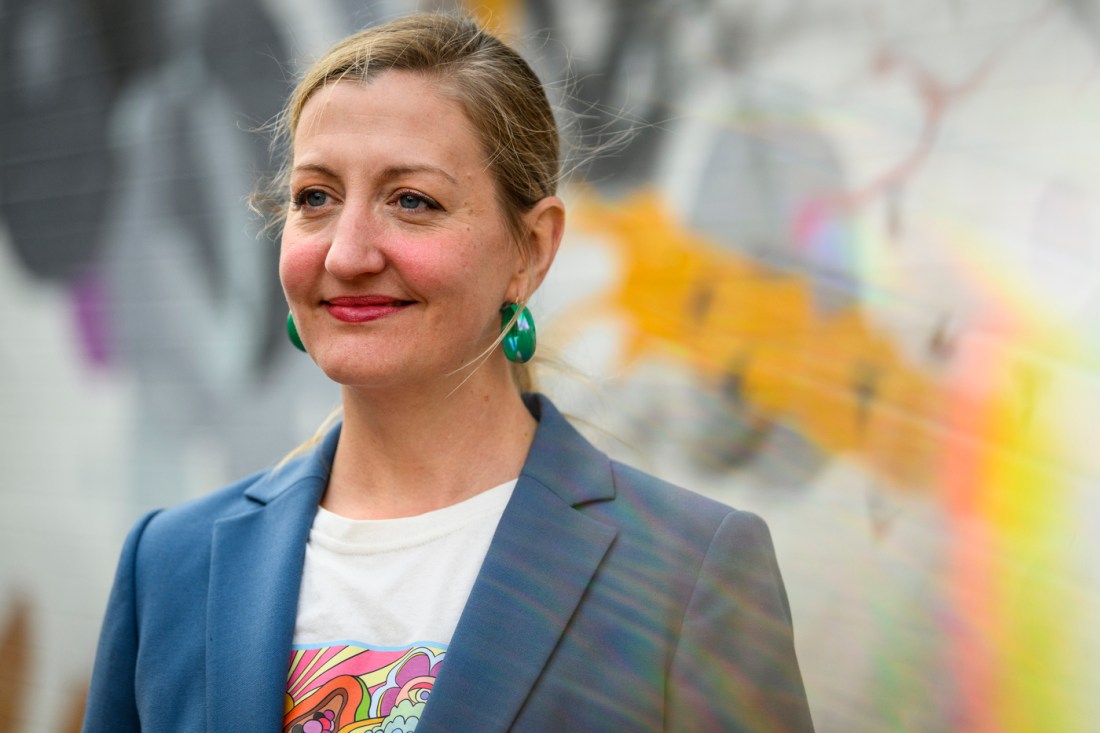
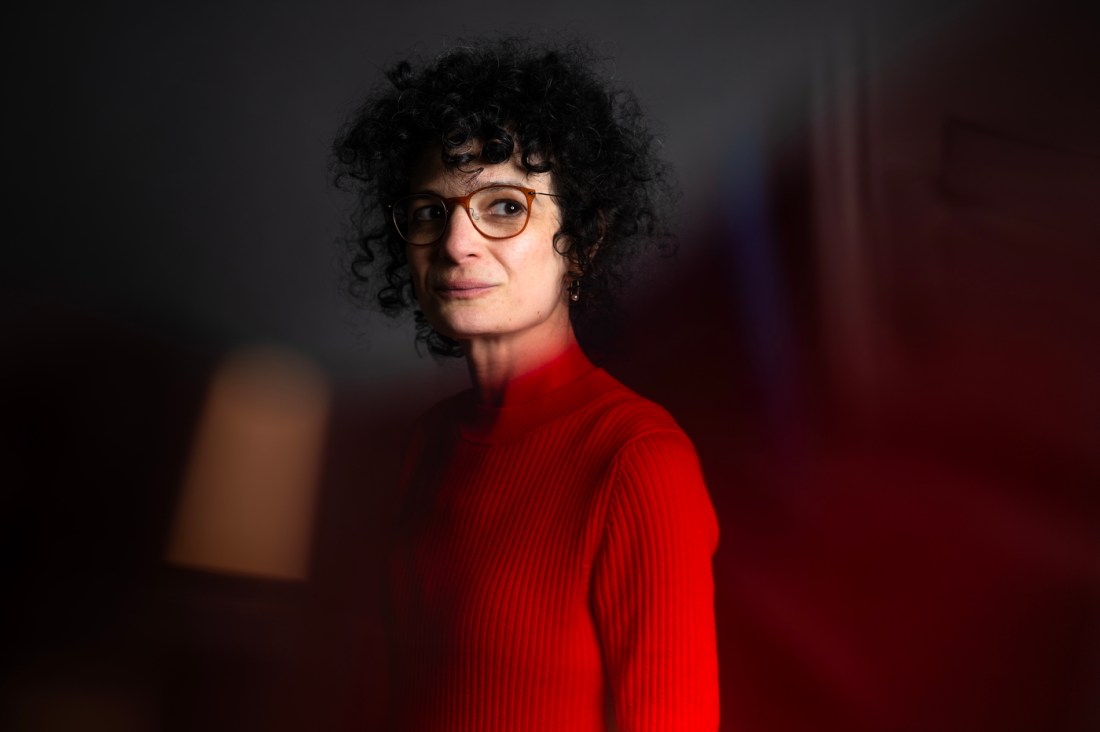
The students who take part in Beyond Creative @ NU come from public, private and charter schools across Boston. Most come from under-resourced schools that are intensely segregated, which the city of Boston defines as any school with a 90% or more non-white student population.
“A lot of students don’t have a music program in school at all or it’s very limited or precarious,” Inglese says.
Notably, Beyond Creative @ NU is designed so that students are paid through the city of Boston’s SuccessLink Youth Empowerment Program.
Letia Larok, hip-hop artist and TCP executive director, emphasizes that Beyond Creative @ NU is focused on teaching students about the creative process and, through that, aims to help them grow as people. It’s why students don’t need to have any prior musical experience coming into the program.
“I’m intentional about that because … there’s so many things that some of them have internally that some of them have never shown anyone else,” Larok says. “I’ve seen that growth, that confidence, build over the course of the program.”
At the core of the program is the idea that students should be empowered to not only find their own voice but amplify it, Borderline says. Importantly, they get to do that together. All the students learn the same skills, but what role they choose to play on the collaborative album –– producer, performer, graphic designer –– is entirely up to them.
“With teenagers now, a lot of it is school, work and you scroll on social media all day, and it’s harder for us to connect to each other,” says Jade Reid, a student in the program who graduated from Boston Latin Academy in the spring. “Even just working with other people your age is really helpful.”
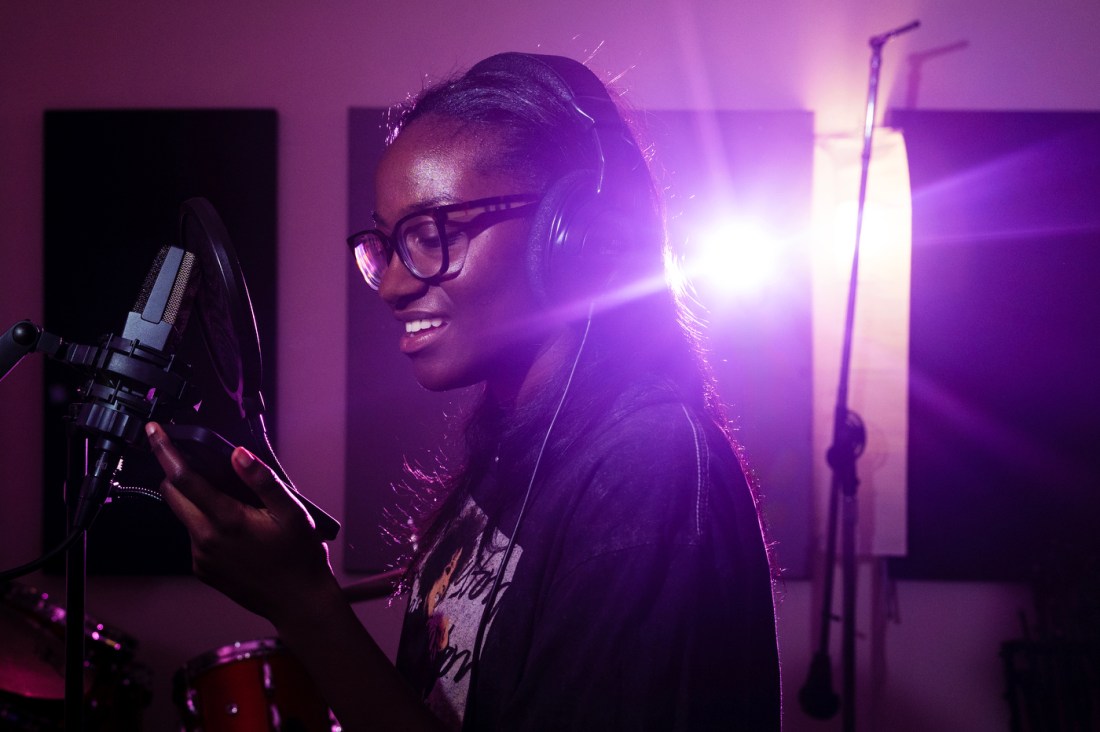
Borderline starts every session of Beyond Creative @ NU with an exercise called “Know Your Sound.” Students share their favorite songs and pick specific elements that connect with them.
“They slowly but surely get to know themselves in that process because we’ll end that course with, hey, these songs that you like, these genres that you like, these instruments and sounds you like, that’s your sound,” Borderline says. “It brings them closer to knowing themselves and liking themselves.”
Arroyo Lomon says he discovered his sound is a style of hip-hop inspired by 1960s and 1970s soul and jazz. Another student, Borderline says, found an even more specific sound: the key of C sharp minor.
The students have released one album on Spotify, “Lead with Love,” under the name The Chosen People, with another in the works and set to release this year. Moore says if the program gets any bigger, “it’ll have to be a couple of albums that come out of each session instead of just one.”
The students will also get a chance to see how their music connects with people in a live setting. They will perform music off their latest album at a yet-to-be-determined TCP event in September. For Arroyo Lomon, it’s another way to do what he’s really trying to do through his music: communicate.
“[Beyond Creative @ NU] gives people an outlet and it gives people a means not just of expression but of many different ways of communication artistically,” Arroyo Lomon says. “You can develop an understanding of not just how you can have a vision but how to communicate and create that vision.”
Cody Mello-Klein is a Northeastern Global News reporter. Email him at c.mello-klein@northeastern.edu. Follow him on X/Twitter @Proelectioneer.

